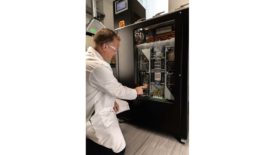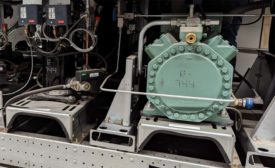Home » energy efficiency
Articles Tagged with ''energy efficiency''
FROSTlines
Pairing a heat pump with a gas furnace provides backup heat, lower emissions, and peace of mind
Read More
U.S. House of Representatives Push Back on Further Regulation Attempts
An HVAC Minute Video Update: April 23, 2024
Read More
Cooling Off an Island Paradise
HVAC control helps the Chub Cay private island resort cut energy use in half
Read More
DOE's Consumer Appliance Regulations Get Pushback
Republican-sponsored bills include the Affordable Air Conditioning Act
Read More
Low-GWP Solutions For Data Centers
New refrigerants and technologies are now available that meet AIM Act requirements
Read More
Project Files: Episode 70 — Rooftop Replacement at Texas Motor Speedway
New Rheem RTUs boost overall equipment efficiency
Read More
Florida Budget Includes IRA’s HVAC Rebates
DeSantis, who rejected the federal money last year, faces another decision about it
Read More
Copyright ©2024. All Rights Reserved BNP Media.
Design, CMS, Hosting & Web Development :: ePublishing








.jpg?height=168&t=1713797231&width=275)






